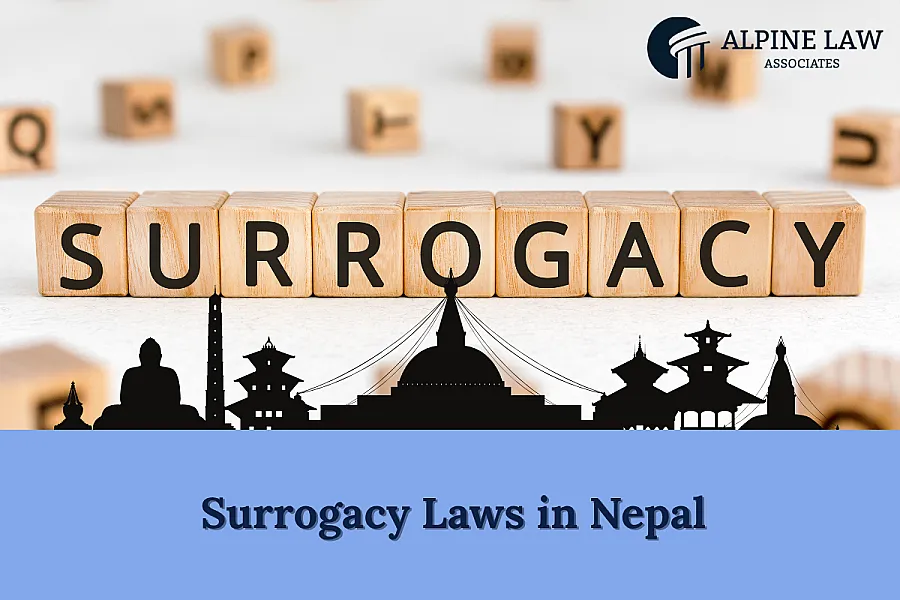
Table of Contents
Surrogacy, an assisted reproductive technology where a woman carries and delivers a child for another person or couple, has become increasingly relevant worldwide. It offers a solution to individuals and couples who face infertility or other reproductive challenges. However, surrogacy also raises complex legal, ethical, and social issues, necessitating clear laws to regulate its practice.
In Nepal, surrogacy is a relatively new and sensitive topic. Despite the growing demand for surrogacy services, Nepal lacks a comprehensive legal framework dedicated explicitly to surrogacy. This article explores the existing legal context, relevant laws, challenges faced by surrogates and intended parents, and the current legal status of surrogacy in Nepal.
Nepal’s socio-cultural landscape traditionally values biological parenthood and family structures. Assisted reproductive technologies, including surrogacy, have gradually entered Nepalese society, particularly among urban and affluent populations. Surrogacy, both commercial and altruistic, has been practiced informally or under guidelines loosely adapted from neighboring countries.
Nepal’s medical tourism sector also attracted foreign couples seeking surrogacy services, due to lower costs and more relaxed regulations compared to other countries. This increased international demand exposed Nepal to concerns over ethical violations, exploitation of surrogate mothers, and legal ambiguities regarding parental rights and citizenship of children born via surrogacy.
In Nepal, surrogacy services have been prohibited since 2015, and currently, there is no specific legislation addressing surrogacy-related issues.
In 2072 BS, two writ petitions were filed concerning the commercialization of surrogacy: Pushpa Raj Pandey v Office of Prime Minister, Ministry of Health and Population and others (Writ No. 072-WO-0119) and Prabin Pandak v Office of Prime Minister and others (Writ No. 072-WO-0120). These petitions sought to annul the cabinet decision dated 2071/6/2 BS, which had permitted hospitals to offer surrogacy services based on National Health Policy 2071 (Policy No. 12), stipulating that fertility matters be managed under surrogacy-related laws. Due to the lack of proper legal framework and mechanisms, the commercialization of surrogacy was argued to potentially harm women’s reproductive rights and could lead to exploitation, violence, and trafficking.
The Supreme Court issued an interim order halting the cabinet’s decision until a final ruling was made. Given the numerous unresolved legal questions surrounding surrogacy, the Court instructed hospitals to cease providing surrogacy services.
Following this interim order, the Cabinet revoked its earlier decision authorizing surrogacy.
In its final judgment, the Supreme Court directed the relevant authorities to formulate appropriate legislation regulating surrogacy in Nepal, taking into account the following points:
- A complete ban on commercial surrogacy, as a mother’s womb should never be commodified.
- Surrogacy should only be permitted for Nepali married couples who have been medically certified as infertile or unable to conceive due to health issues.
- Same-sex couples and single individuals are not permitted to engage in surrogacy.
- Foreign nationals are barred from practicing surrogacy in Nepal.
- Surrogacy requires the mutual consent of both the intended married couple and the surrogate mother.
- Surrogacy should be allowed solely for altruistic, non-commercial purposes.
- Clear criteria must be established for surrogate mothers.
- Health institutions providing surrogacy services must meet prescribed legal standards and obtain necessary consent from authorities.
- Both the intended parents and surrogate must apply to the designated authority before proceeding.
- Legal rights and responsibilities of the intended parents and surrogate mother must be clearly defined.
- Procedures for birth registration and related events must be clarified.
- Institutions must be established to supervise, monitor, and ensure compliance with surrogacy laws.
Surrogacy presents important possibilities for those facing infertility but also raises significant ethical and legal challenges that require clear regulation. In Nepal, surrogacy remains a sensitive and largely unregulated issue, with services banned since 2015 due to concerns over exploitation and lack of proper legal safeguards. The Supreme Court has emphasized the need for comprehensive laws that prohibit commercial surrogacy, allow only altruistic arrangements for certified infertile Nepali couples, and clearly define rights and responsibilities. Establishing a robust legal framework will be crucial to protect the rights of surrogate mothers, intended parents, and children, ensuring ethical and transparent surrogacy practices in Nepal.
Disclaimer:
This article is intended solely for informational purposes and should not be interpreted as legal advice, advertisement, solicitation, or personal communication from the firm or its members. Neither the firm nor its members assume any responsibility for actions taken based on the information contained herein.


